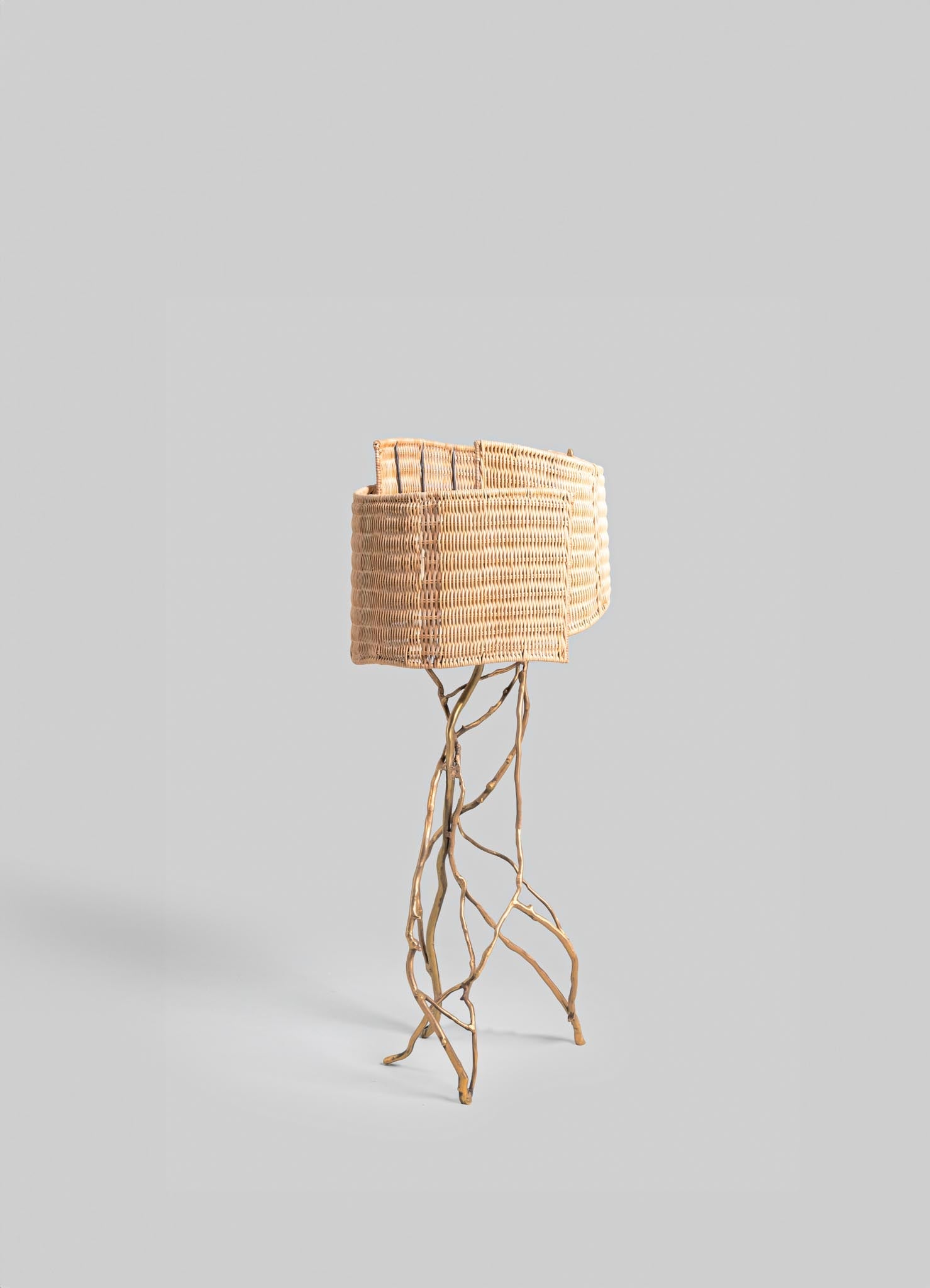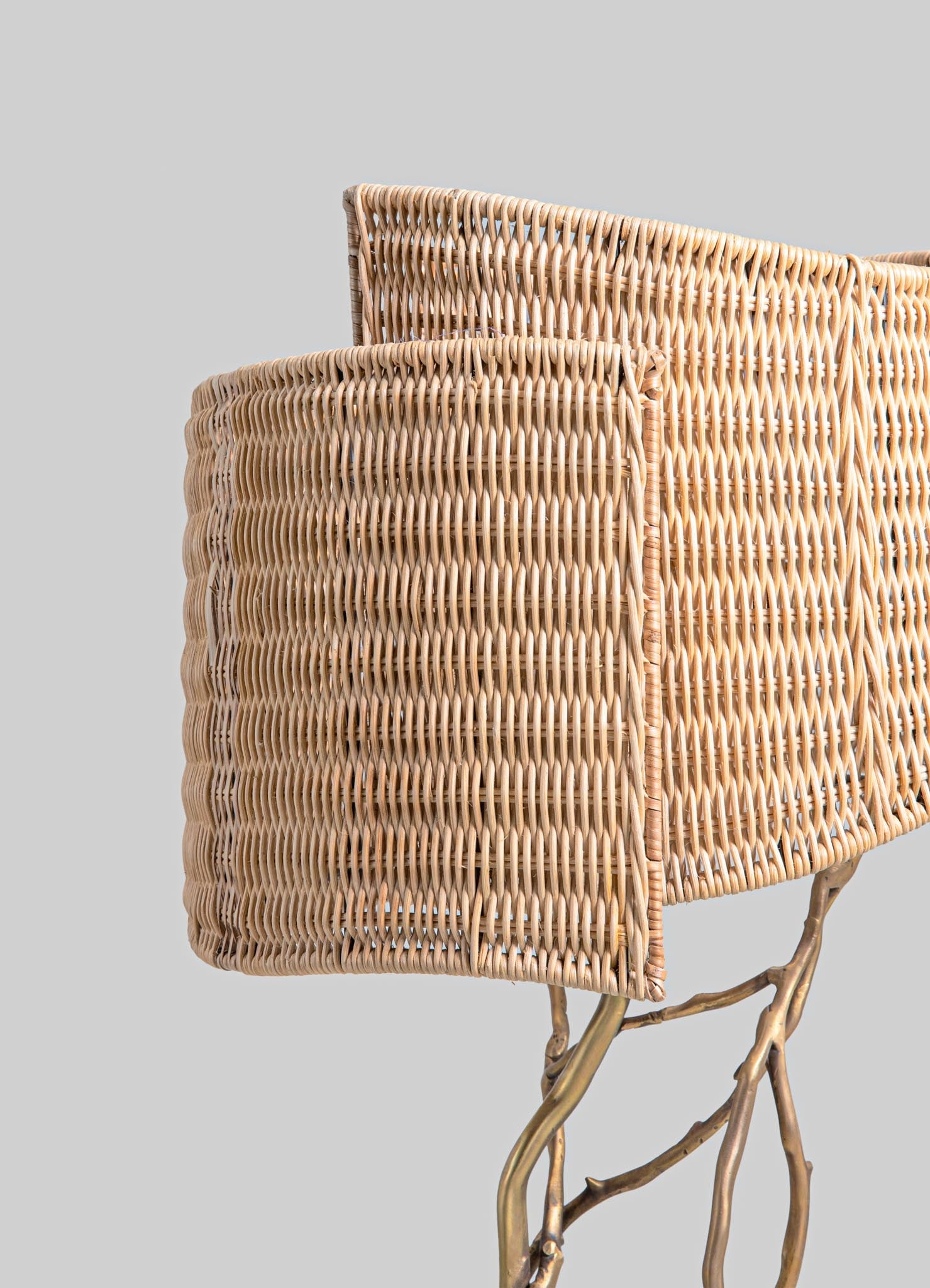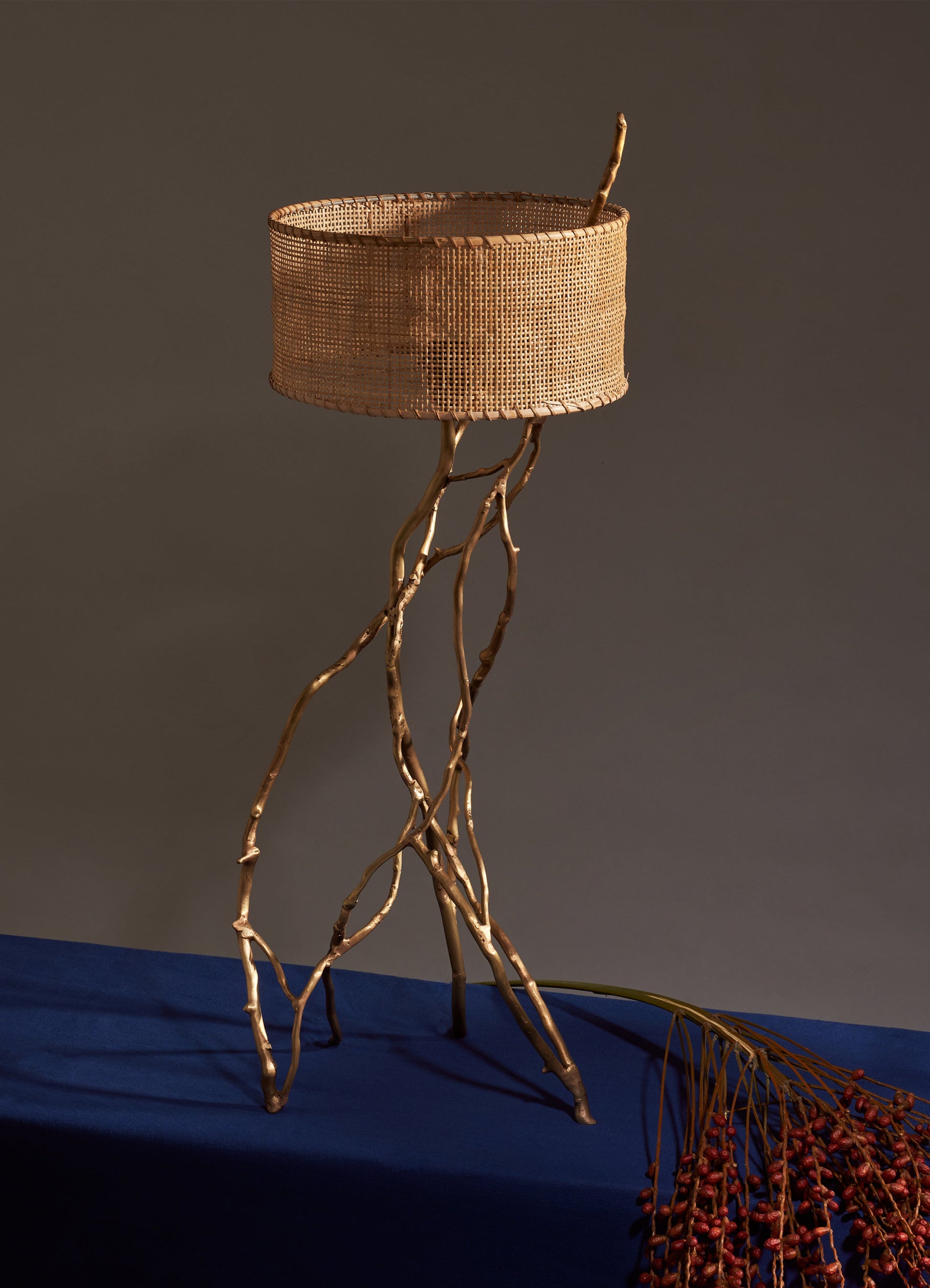Majuli Table Lamp
Majuli Table Lamp
Sinuous forms in a captivating rhythm of deftly woven cane, evoke the dynamic flow of Assam's rivers. The collection’s namesake, the river island Majuli, becomes the sourc. . . more
Sinuous forms in a captivating rhythm of deftly woven cane, evoke the dynamic flow of Assam's rivers. The collection’s namesake, the river island Majuli, becomes the source of inspiration for its objects. The island’s natural richness and cultivation of cane give rise to a distinctive combination of forms through cane and brass.
Table Lamp in brass. Handmade in India.
Couldn't load pickup availability
Product Details
Product Details
- Material: Brass
- Size: 14"L x 15"W x 36"H | 35.6 L x 38.1 W x 91.4 H cm
- Weight: 4 kg | 8.8 lbs
- Number of Pieces: 1 Table Lamp & 1 Lamp Shade
- SKU: VTL401
- This product has been handcrafted by local artisans. As such, slight variations are a testament to the unique character of a piece made by hand.
- Country of Origin: India
- Manufactured by: Nirvaan Design Private Limited, A-4, Sector 64, Noida, U.P. - 201301
Care Details
Care Details
- For daily cleaning, use soft, dry cloth.
- To remove stains or restore shine, clean with soft cloth using branded brass cleaner, following relevant instructions.
- Do not use harsh detergents or abrasive materials that may scratch.
Shipping & Returns
Shipping & Returns
- International orders will be delivered within 7-10 business days from the date of dispatch. Shipping is calculated at checkout.
- For shipping to India, please click here.
- We don’t accept cancellations, returns, or exchanges. For more details, please refer to our Shipping & Returns policy.
Secure Payments
Production Lead Time: 10-14 Days
Insured Worldwide Delivery
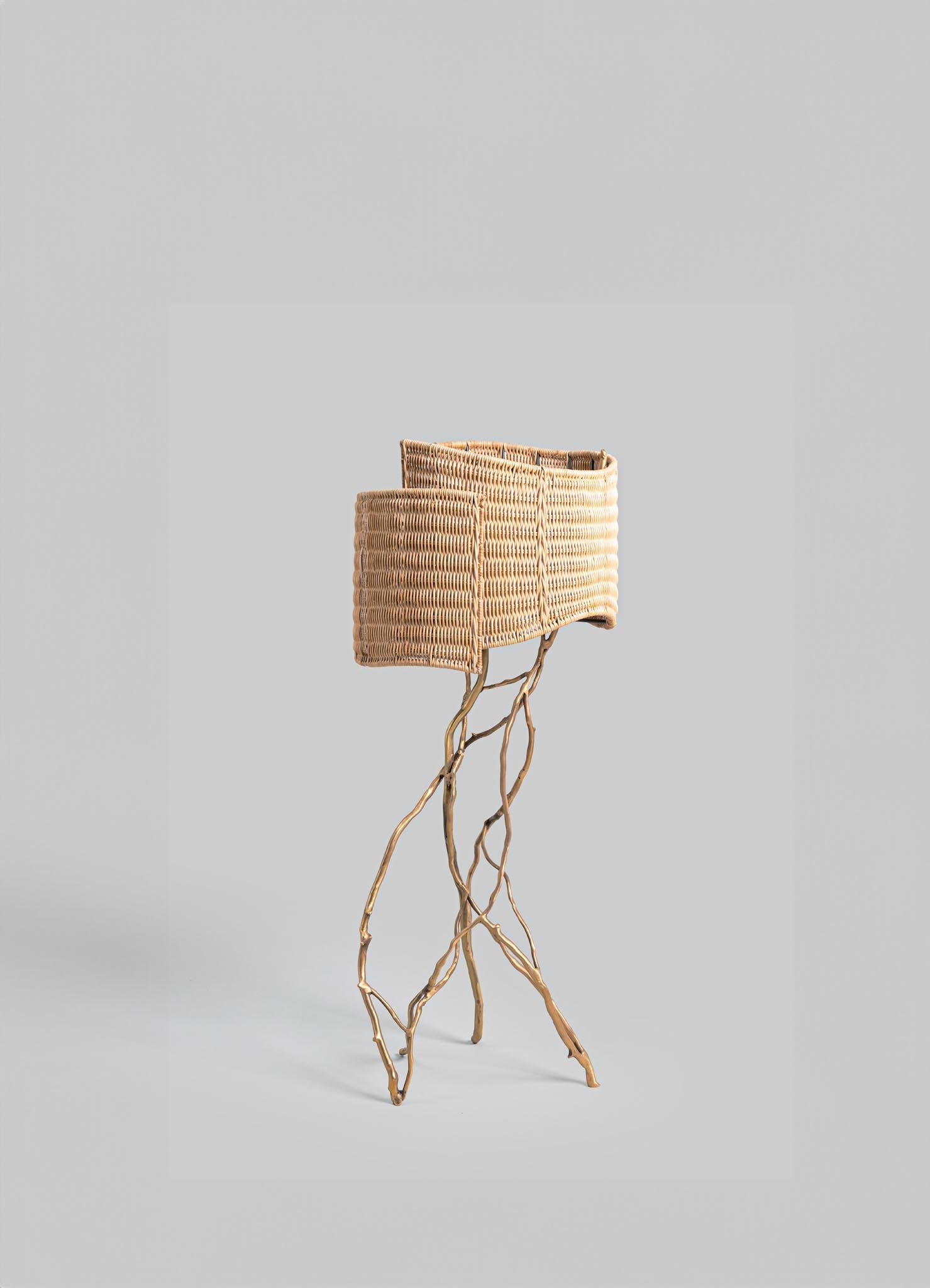
Request a Quote / Customisation
Our team will get back to you within 2 working days
Majuli Table Lamp
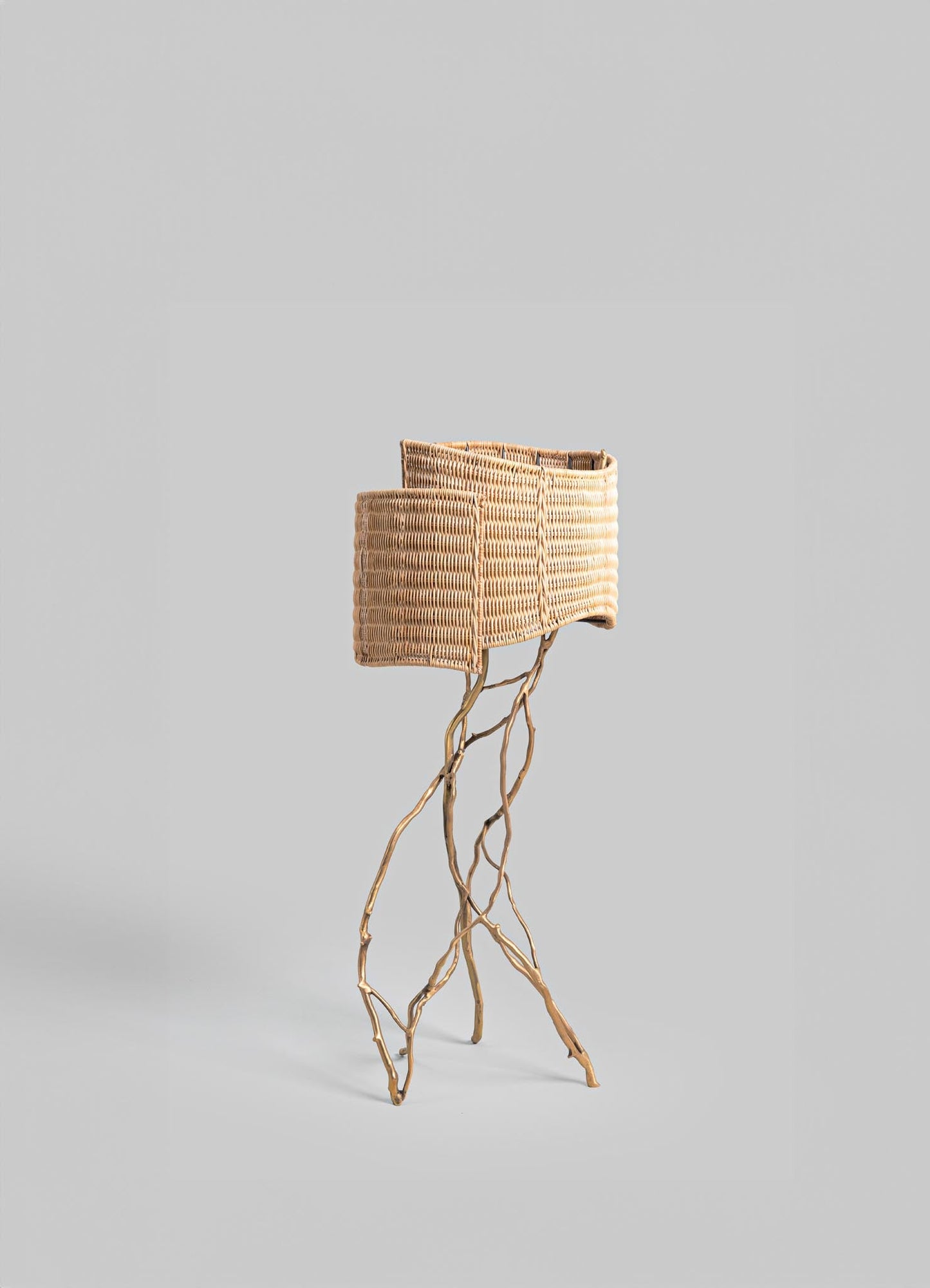
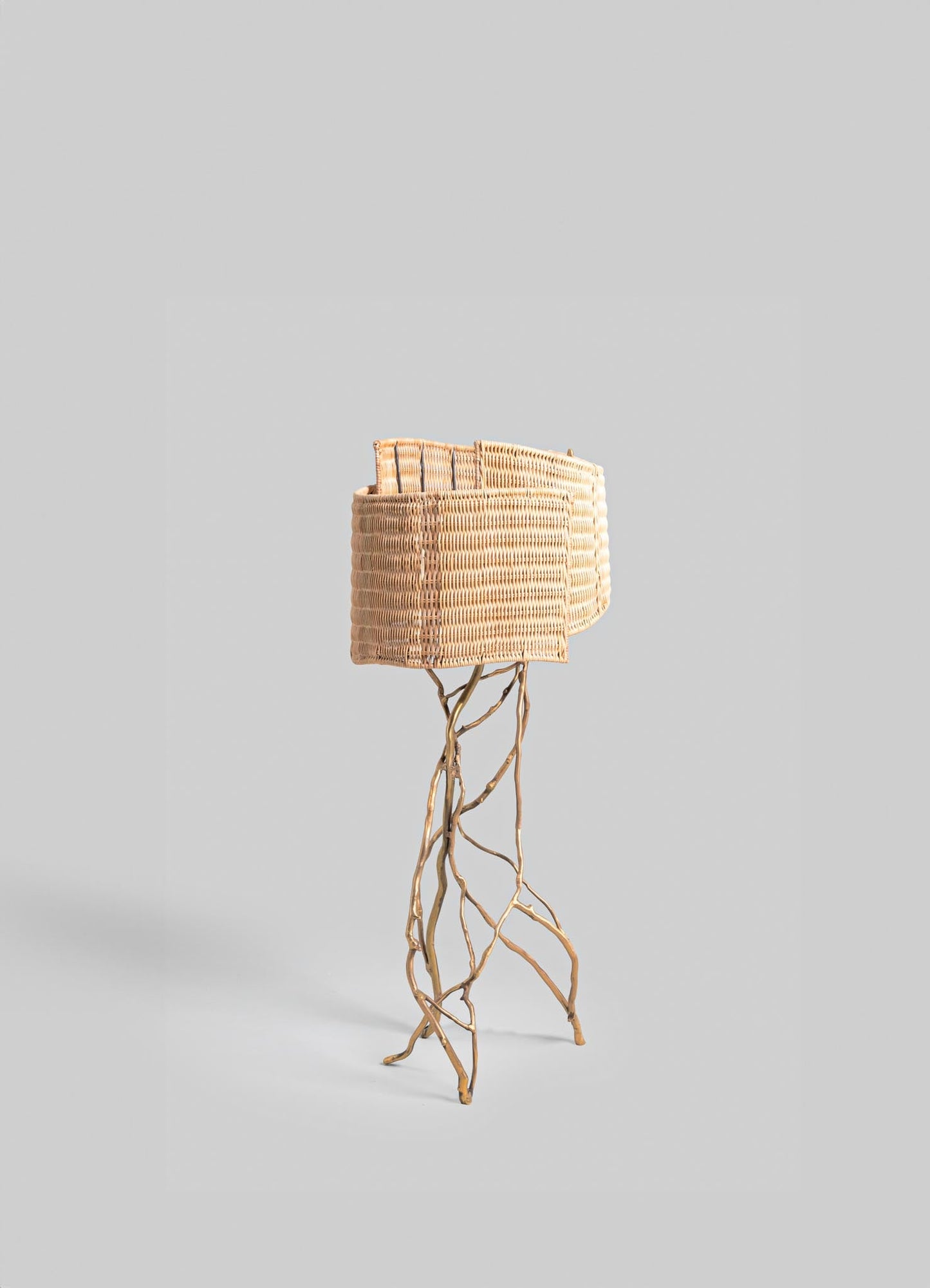
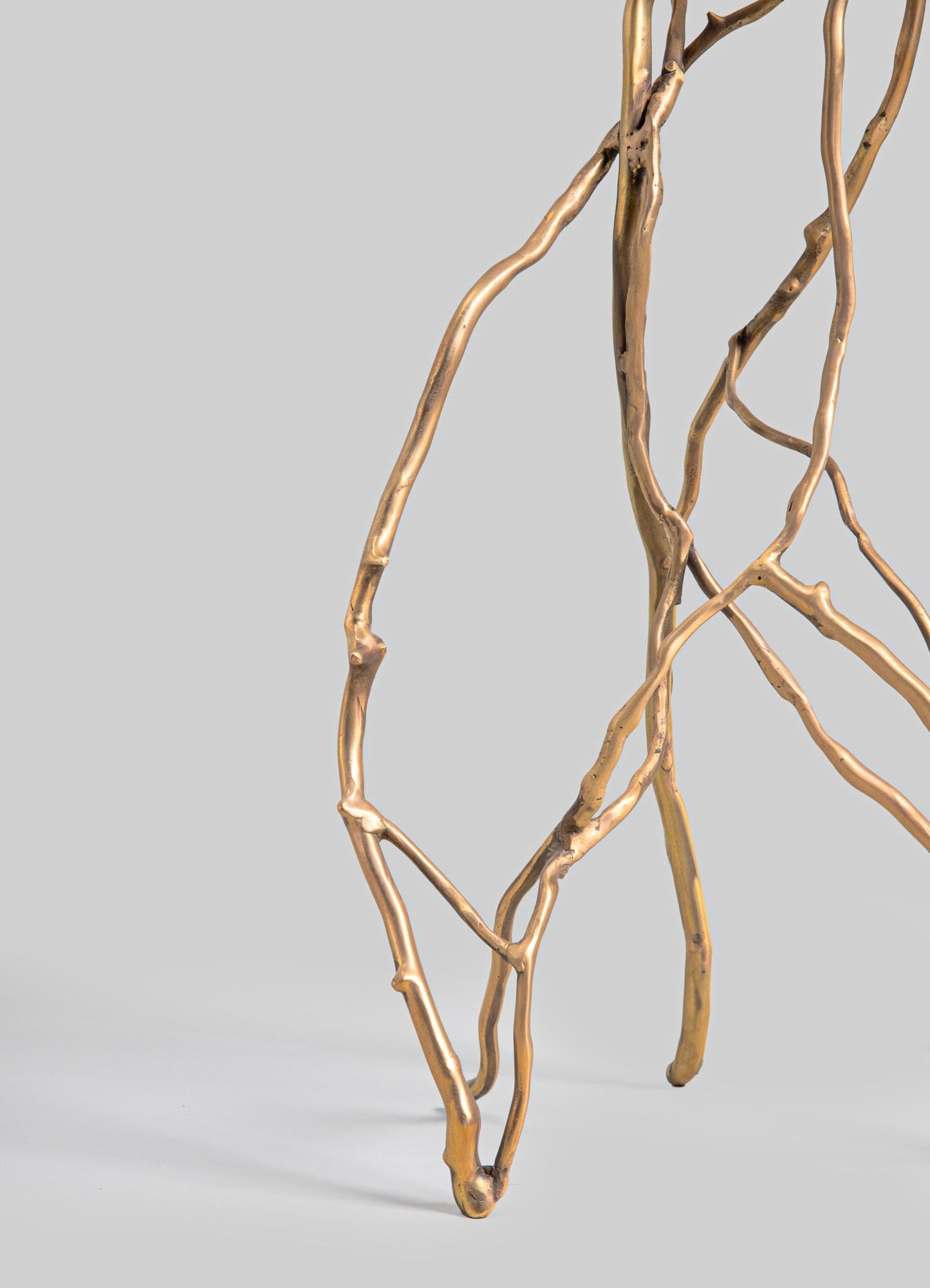
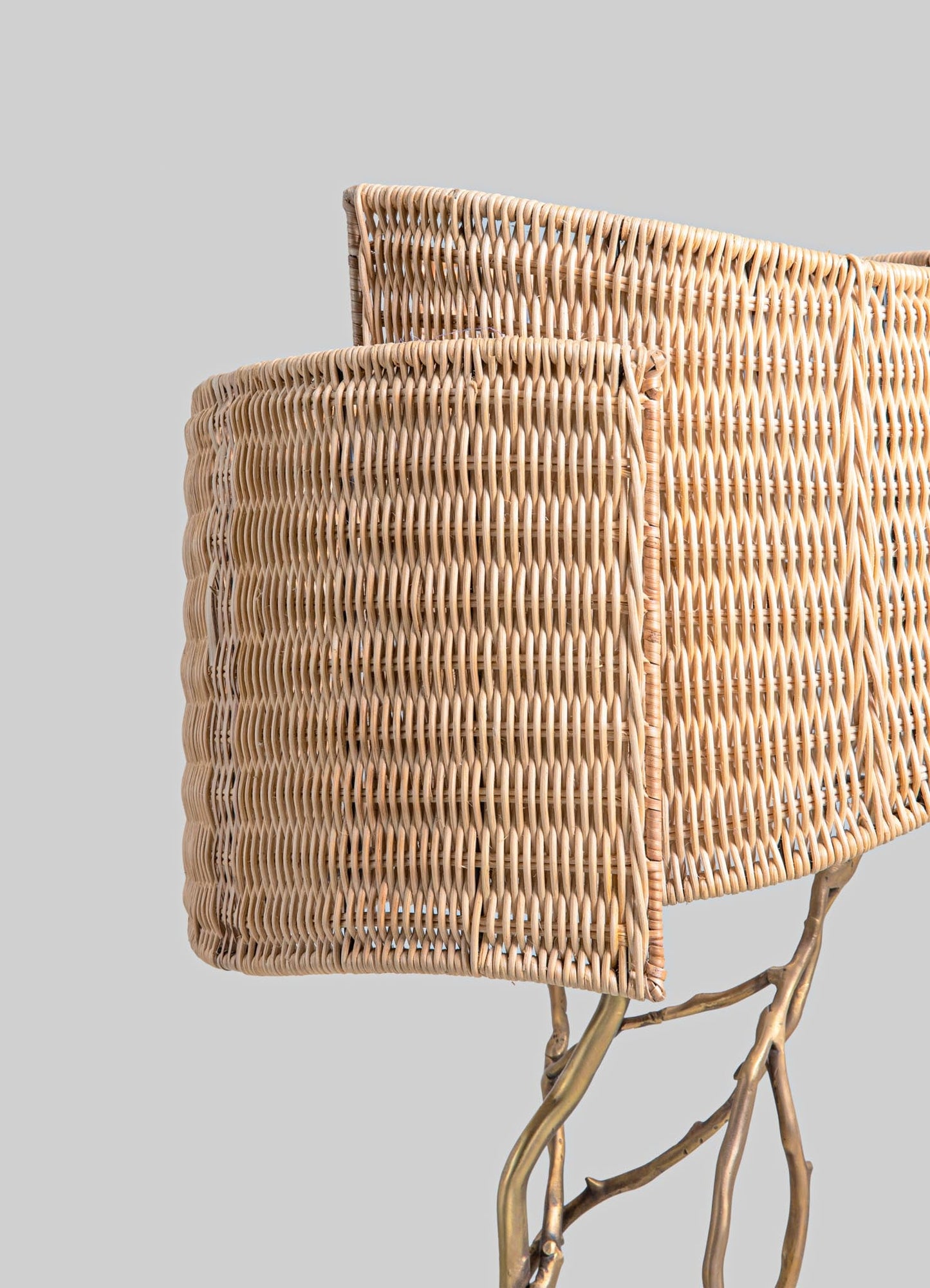
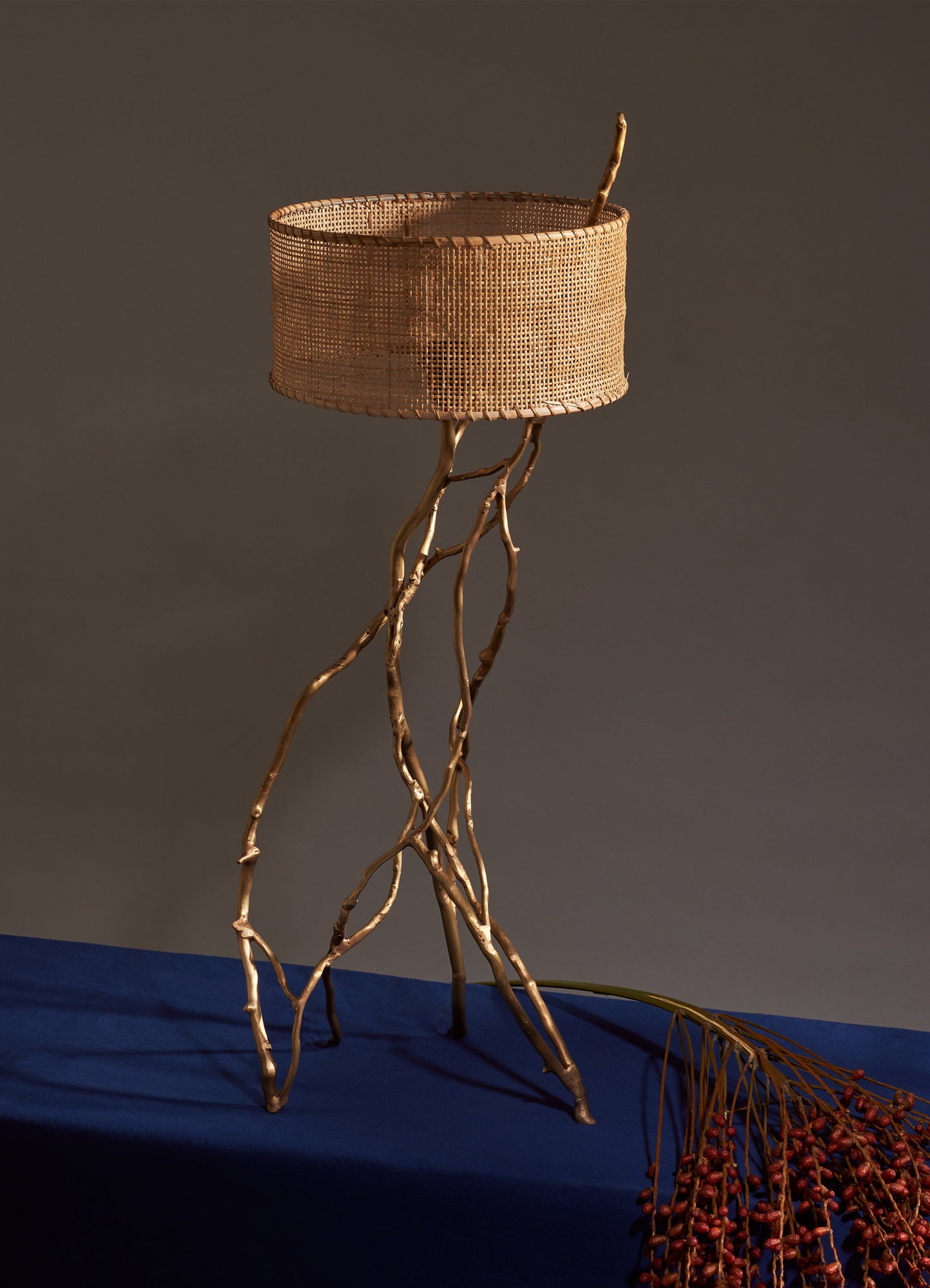
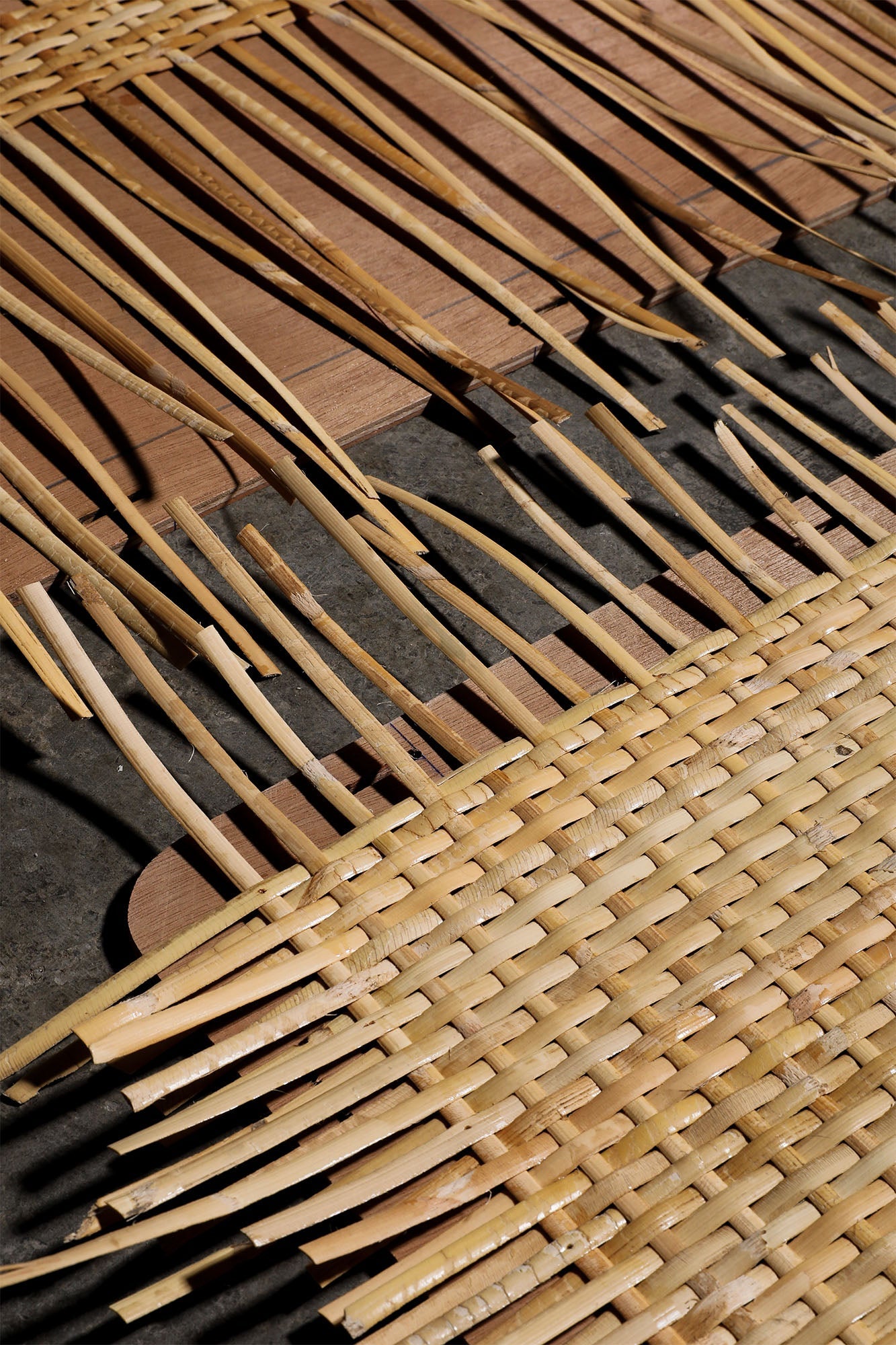
Cane Weaving
Dive into the rich history of cane furniture, a timeless testament to the enduring craftsmanship that spans continents. In India, this age-old technique can be traced back to the 7th century, where skilled hands first wove magic with the supple strands of cane, carefully extracted from the bark of the rattan plant—a distinguished member of the palm family.
The journey begins with an appreciation for nature's bounty, as artisans delicately peel the cane strips, unveiling their innate beauty and resilience. Submerged in water, these strips undergo a transformative ritual, softening and becoming pliable under the gentle embrace of moisture. With practised precision, artisans deftly weave these now-flexible strands around robust frames, sculpting them into elegant forms that exude both grace and lightness.
From this ancient skill and creativity, what emerges are not merely pieces of furniture, but objects that transcend utility, encapsulating a sense of timelessness. Each carefully interwoven strand of cane narrates a story of tradition and craftsmanship handed down through generations—a tribute to the ingenuity and artistry of its creators.
Yet, cane furniture is more than a marvel of human skill; it is a celebration of sustainability and environmental stewardship. The rattan plant, the source of cane, flourishes abundantly in the lush forests of Southeast Asia, rendering it a renewable and eco-friendly resource. By harnessing the natural strength and flexibility of cane, artisans fashion furniture and baskets that are not only lightweight and durable but also boast an impressively low carbon footprint. In this harmonious dance between man and nature, cane furniture stands as a living example of the potential for sustainable practices to create both functional and aesthetically pleasing artefacts.
